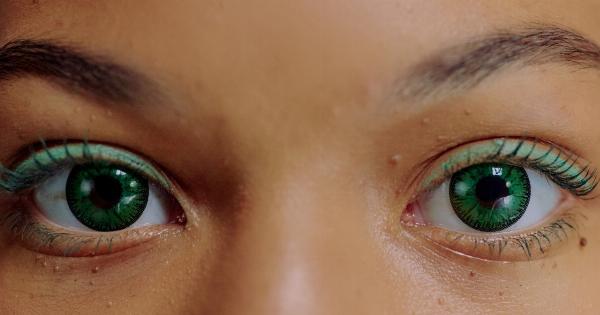Swimming is an excellent workout for overall fitness, and sea swimming is the most refreshing form of swimming. It can also be a great stress reliever.
However, swimming in seawater also exposes your eyes to various risks that can damage them in the long term. For those who wear contacts, the risks associated with contact lenses increase drastically. The saline content and bacteria in the seawater can contaminate your contact lenses and cause irritation, infection and even eye damage.
In this post, we will discuss how to safely protect your eyes while swimming in the sea with contact lenses.
Use of Goggles
The most reliable way to protect your eyes while sea swimming with contacts is to wear a pair of waterproof goggles.
Goggles keep your eyes protected from the seawater, and you can swim freely without worrying that your contact lenses will come in contact with the eyes. Make sure to get a pair of well-fitted and high-quality goggles so that no water can seep in and cause discomfort. Avoid using regular goggles, which are not designed for sea swimming.
They may not provide adequate protection and can sometimes worsen the situation.
Choose the right contact lenses for sea swimming
If you plan to swim in the sea regularly, you can consider investing in contact lenses specifically formulated for water sports. These lenses are designed to be comfortable while swimming and are resistant to water.
They usually come with UV protection, which also provides an additional layer of protection against harmful UV rays from the sun.
Avoid wearing contact lenses in the sea
The most conventional solution to protect your eyes during sea swimming is to avoid wearing contact lenses. This is the safest option if you don’t want to take any risks.
Instead, you can opt for prescription swimming goggles that provide clarity while swimming in the sea without the need for contact lenses. But it’s essential to ensure proper hygiene and maintenance of the goggles to avoid any infection or irritation.
Hygiene and Maintenance
Maintaining good hygiene and taking good care of your contact lenses is essential while swimming in the sea. Sea water contains bacteria, viruses and other harmful microorganisms that can cause severe eye infections.
Before and after swimming, always wash your hands with soap and water. Clean your contact lenses thoroughly using a suitable contact lens solution, and don’t hesitate to dispose of them if they get contaminated.
Avoid swimming in areas marked with blue-green algae or other harmful toxins that can cause eye irritation.
Rinsing with clean water
After a swim in seawater, it’s vital to rinse your eyes with clean water as soon as possible to remove any contaminants that may have got into your eyes. It’s also essential to rinse your contact lenses thoroughly with the same clean water.
If you are using disposable contact lenses, make sure to dispose of them once you are done swimming.
Never Rub your Eyes
Rubbing your eyes, even gently, can cause irritation and further worsen the situation. Rubbing your eyes can also lead to small scratches on the surface of the eyes, which can further worsen any underlying conditions.
If you feel that your eyes are irritated or itching, seek medical attention immediately.
Regular Eye Checkups
If you frequently swim in the sea with contact lenses, it is essential to schedule routine eye checkups with your eye doctor.
An eye doctor can identify any potential infections or irritations early on and take corrective measures to avoid any further complications.
Wear a hat and UV protection glasses
Wearing a hat and UV protection glasses not only shields your eyes from harmful UV rays from the sun but also prevents seawater from getting into your eyes.
A hat and UV protection glasses can also help reduce the glare of the sun on your lenses when you are out of water.
Avoid wearing makeup
Wearing makeup while swimming can also cause irritation to your eyes and contact lenses. Waterproof products may not be enough, and chemicals in makeup can pollute seawater and harm marine life.
It’s always advisable to avoid using makeup while swimming in the sea or opt for a gentle and natural makeup alternative if you can’t avoid it.




























